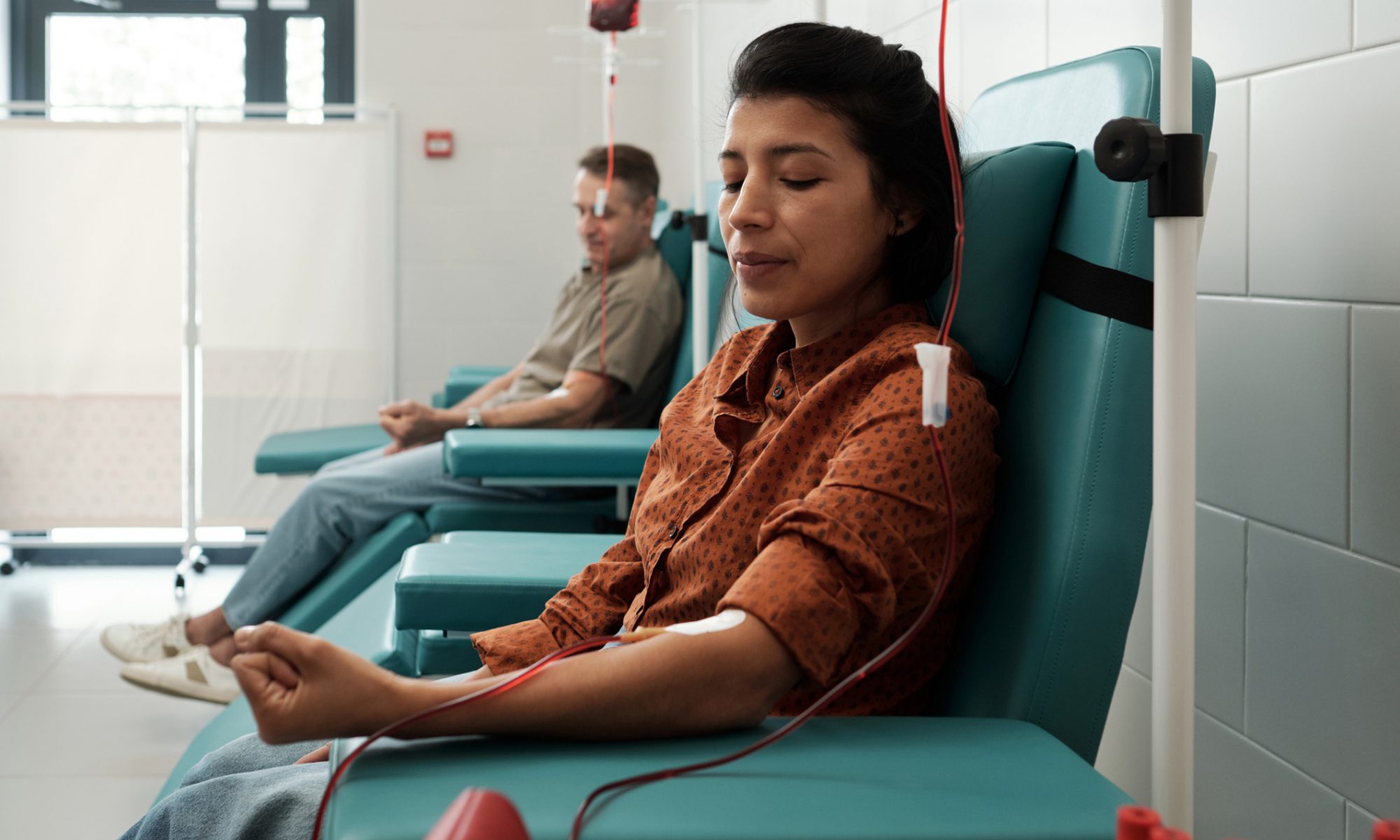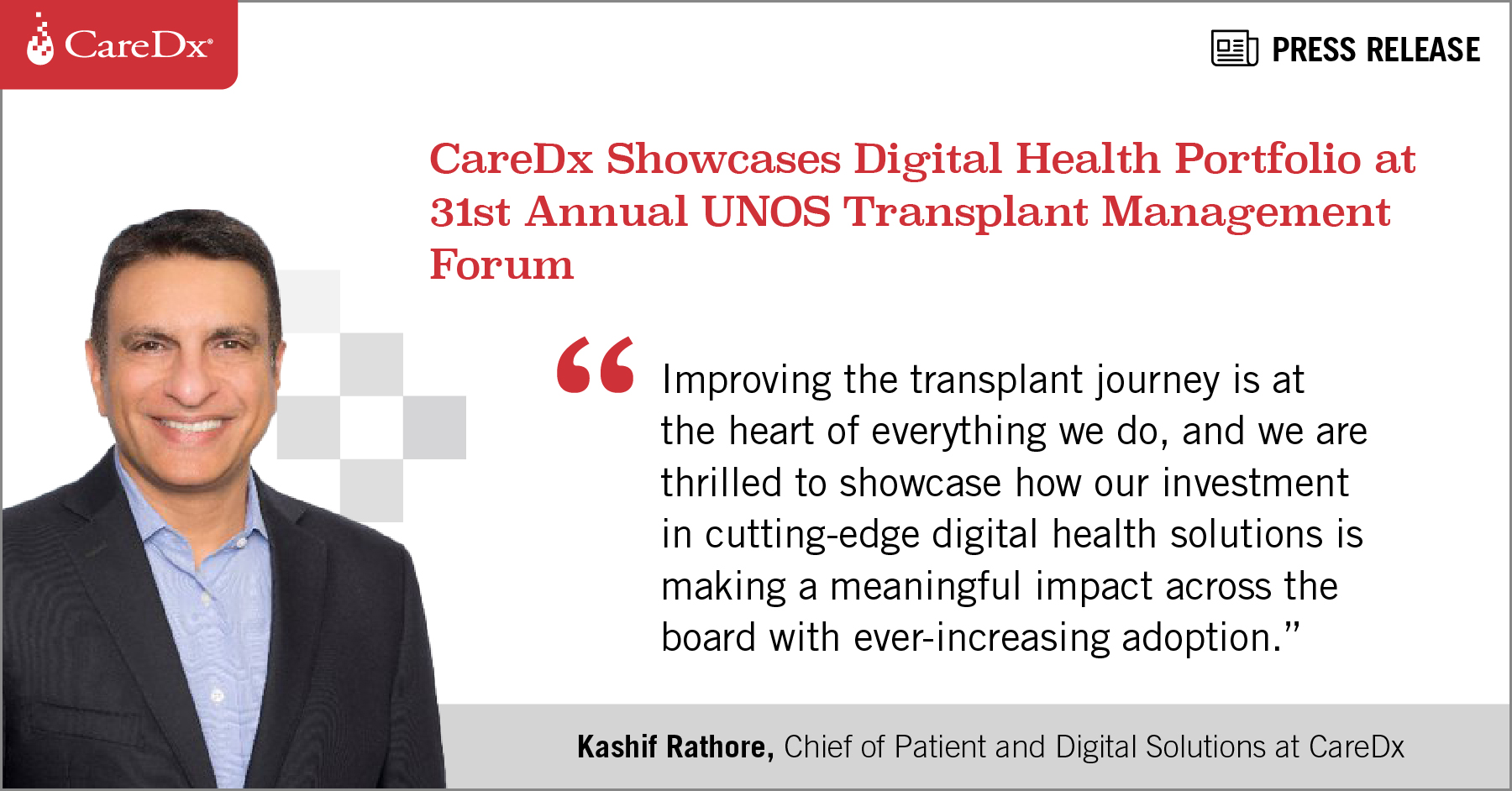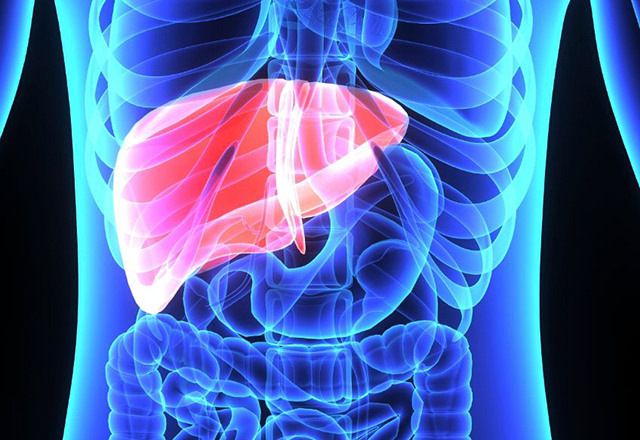Loading
CareDx Showcases Digital Health Portfolio at 31st Annual UNOS Transplant Management Forum
BRISBANE, Calif.–(BUSINESS WIRE)– CareDx, Inc. (Nasdaq: CDNA), a leading precision medicine company focused on the discovery, development, and commercialization of clinically differentiated, high-value healthcare solutions for transplant patients and caregivers – today announced that it will showcase its digital health portfolio and host a symposium which addresses barriers in access to transplantation at the 31st Annual UNOS Transplant Management Forum (TMF) taking place May 16-18 in Denver, Colorado. CareDx is the leading Diamond level sponsor of this year’s UNOS TMF.
“Improving the transplant journey is at the heart of everything we do, and we are thrilled to showcase how our investment in cutting-edge digital health solutions is making a meaningful impact across the board with ever-increasing adoption,” said Kashif Rathore, Chief of Patient and Digital Solutions at CareDx. “CareDx is proud to participate in this important yearly forum to demonstrate how our connected set of transplant management solutions enables more cohesive care in the complex transplant ecosystem.” Read the complete press release on CareDx.com.
Loading









